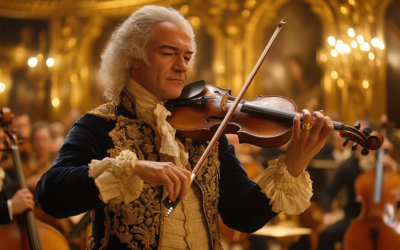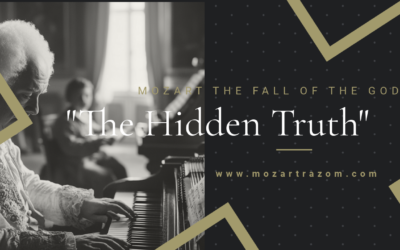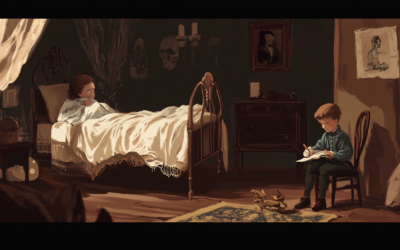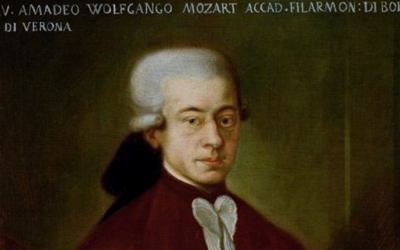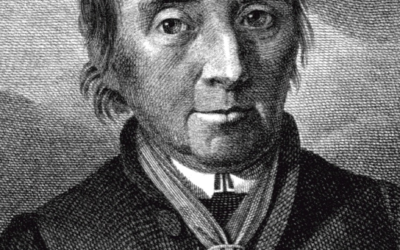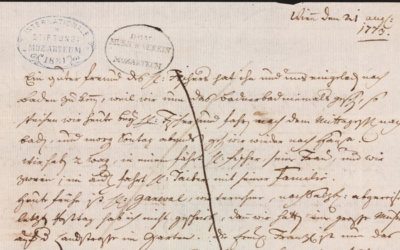Wolfgang Amadé Mozart
Unveiling the Truth: Mozart in Paris
Unveiling the often-overlooked reality of Mozart’s time in Paris reveals a story of manipulation and deception, far removed from the glorified narratives crafted by his father, Leopold.
Mozart in Italy: The Untold Story
Was Mozart truly a solitary genius, or was he merely the instrument of his father’s ambition? “Mozart in Italy” challenges the conventional narrative, revealing a complex dynamic between father and son that shaped the course of music history. Prepare to question everything you thought you knew.
“Leopold’s relentless self-promotion was not mere parental pride but a deliberate act to create a legacy for his son that would endure through the ages”
Mozart in Italy
The narrative of Wolfgang Amadeus Mozart’s journey through Europe has been long enshrined in popular culture as one of extraordinary triumphs, particularly in the courts of Paris and Versailles. However, a closer examination of the facts reveals a different story, one shaped by manipulation, exaggeration, and a relentless pursuit of status by his father, Leopold Mozart.
The Grand Illusion of Versailles
Leopold Mozart, ever the ambitious and controlling figure, orchestrated the family’s extensive tour of Europe with the calculated aim of showcasing his children’s talents. Paris, with its glittering court at Versailles, was a prime target. Arriving in November 1763, Leopold had already secured the help of Friedrich Melchior Grimm, a well-connected figure in Parisian society, to arrange performances for his children, Wolfgang and Nannerl. Yet, these performances were far from the grand concerts that one might imagine today. Instead, they were modest exhibitions, heavily promoted through Grimm’s Correspondance Littéraire, where hyperbolic terms like “genius” and “miracle” were liberally applied, often with little basis in reality.
The Myth of Royal Favour
Leopold’s correspondence paints a picture of unparalleled success at the French court, with tales of Wolfgang and Nannerl receiving the warmest of welcomes from King Louis XV and his family. The truth, however, is far less glamorous. While the Mozarts did perform at Versailles, there is scant evidence to suggest that the royal family paid them much attention. For instance, the infamous story of Wolfgang being served by Queen Maria Leszczyńska at the New Year’s Eve banquet is likely a fabrication. Such narratives were carefully crafted by Leopold to enhance his children’s reputations and secure their future prospects.
Deceptive Practices and False Accolades
One of the most striking examples of Leopold’s manipulations is the poem allegedly dedicated to his children by a French poet in 1764. In reality, this poem was a clumsy forgery. Leopold had taken a pre-existing work by the poet Barnabé Farmian Durosoy, removed the names of the original French musicians, and replaced them with his children’s names. This poem, presented as a genuine tribute to Wolfgang and Nannerl, was nothing more than a piece of Leopold’s marketing strategy, aimed at solidifying their status in the eyes of the European elite.
The Legacy of Deception
Leopold Mozart’s relentless self-promotion and fabrication of events were not mere parental pride; they were deliberate acts designed to create a legacy for his son that would endure through the ages. However, these embellishments have led to a distorted view of Mozart’s early career, overshadowing the less flattering aspects of his and his father’s personalities. The Mozarts’ time in Paris, often seen as a period of triumph, was in many ways a testament to Leopold’s skill in spinning reality to suit his ambitions.
You May Also Like
The Violin Concertos: Mozart’s Borrowed Genius
Mozart’s violin concertos are often celebrated as masterpieces, but how much of the music is truly his? This article delves into the complexities behind the compositions and challenges the authenticity of some of his most famous works, revealing a story of influence, imitation, and misattribution.
#2 The Hidden Truth of Mozart’s Education
In this video, we uncover the hidden truth behind Wolfgang Amadeus Mozart’s early education and challenge the long-held belief in his effortless genius. While history often celebrates Mozart as a child prodigy, effortlessly composing music from a young age, the reality is far more complex.
The London Notebook
The London Notebook exposes the limitations of young Mozart’s compositional skills and questions the myth of his early genius. His simplistic pieces, fraught with errors, reveal a child still grappling with fundamental musical concepts.
The Mozart Question
In this revealing interview, we delve into the lesser-known aspects of Wolfgang Amadeus Mozart’s life, challenging the long-standing myth of his genius. A Swedish journalist explores how Mozart’s legacy has been shaped and manipulated over time, shedding light on the crucial role played by his father, Leopold, in crafting the career of the famed composer.
Georg Nissen and the Missing Notebooks
After Mozart's death, his widow, Constanze, found a steadfast partner in Georg Nikolaus von Nissen, a Danish diplomat who dedicated his life to preserving the composer's legacy. Nissen not only compiled an extensive biography of Mozart but also uncovered and...
Letters Under Surveillance
In a world without privacy, Leopold Mozart’s letters were carefully crafted not just to inform but to manipulate perceptions. His correspondence reveals a calculated effort to elevate his family’s status while avoiding any mention of failure or controversy.


